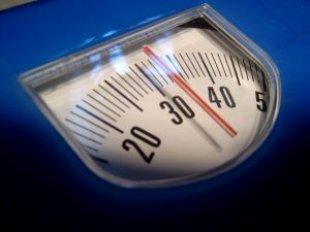Anorexia Nervosa
Natural Solutions in Auckland, Wellington, Christchurch
Got a question about
Anorexia Nervosa?

Learn about the causes of Anorexia Nervosa & find a practitioner in Auckland, Hamilton, Bay of
Plenty, Wellington, Christchurch, Dunedin to help you overcome Anorexia Nervosa within New
Zealand.
Therapies which may benefit Anorexia Nervosa
Anorexia nervosa is an eating disorder. A low body weight is controlled
by intentional starvation, vomiting, excessive exercise and laxative
abuse. It is a psychological illness which results in a distorted body
image and an obsession with dieting.
Causes of Anorexia Nervosa
Anorexia nervosa has a
number of causes most of which are psychological. Teenage girls are
particularly at risk due to the pressures to be slim placed on them by
society.
 The condition causes anxiety about weight and shape of
the body and the anxiety is caused by thinking that you are overweight
or fat, a fear of being fat or an excessive desire to be thin. However,
there are a number of factors that may contribute to those anxieties
which can lead to developing anorexia in the future. They are:
The condition causes anxiety about weight and shape of
the body and the anxiety is caused by thinking that you are overweight
or fat, a fear of being fat or an excessive desire to be thin. However,
there are a number of factors that may contribute to those anxieties
which can lead to developing anorexia in the future. They are:
- Previous weight problems
- Low self-esteem
- Family history of eating disorders
- Depression
- Career demands i.e. athletes, models or dancers who strive for low-body weight due to standards or goals within their industry
Along
with these contributory factors there are certain triggers from life
experiences that can lead to insecurity, fear and stress. These include:
- Going through puberty
- Peer pressure
- Bullying
- Exam stress
- Abuse (physical and sexual)
- Divorce
- Bereavement
People
with anorexia may be suffering with other psychological conditions such
as depression and OCD (Obsessive Compulsive Disorder).
Symptoms of Anorexia Nervosa
Someone
with anorexia nervosa will attempt to hide their condition and eating
habits from those closest to them. The main symptom of anorexia nervosa
is the deliberate loss of weight by under-eating, forced vomiting or
taking of laxatives (to empty the stomach) and over-exercising.
Food and Eating
People
with anorexia will attempt to reduce their weight to as low as possible
and will fear gaining weight to the point whereby they can't eat
normally. When they do eat, they will try to remove the food from their
body by either forcing themselves to vomit or taking laxatives and
diuretics.
Other signs that someone has anorexia include:
excusing themselves straight after mealtimes and hardened skin on the
knuckles (caused by placing fingers down the throat).
Anorexia
nervosa does not cause the sufferer to lose their appetite but the way
they think about food will differ to other people. This can be
displayed by:
- Lying about food and what they've eaten
- Making excuses for not eating
- Lying about their weight
- Uncontrollable thoughts about food
- Spending too much time reading books about food (cookbooks, recipes etc)
- Cooking for others but eating little or nothing themselves
Someone
with anorexia nervosa will apply strict regimes and controls to their
eating habits. They may follow a strict diet, excessively count
calories, avoid any food deemed 'fattening', choose only low-fat foods,
skip meals, avoid eating socially or hide their food. Anorexia can also
cause someone to take appetite suppressants or slimming pills and drink
excessive amounts of caffeinated drinks (coffee, tea, cola).
Body Image and Self-Esteem
An
anorexia sufferer believes that their worth as a person is based on
their looks and weight. By being thinner they believe that others will
accept them and like them and therefore think that further weight loss
is a positive thing. There will be a distorted view of their body image
often thinking they look fat when they're not. A person with anorexia
may try to disguise how thin they've become by wearing clothes that are
too big.
Low self-esteem and low confidence causes an anorexia
sufferer to withdraw and distance themselves from relationships. They
may have a lack of concentration, reduced interest in activities or
their work performance may suffer.
Physical symptoms of anorexia
Poor
eating habits will eventually lead to certain physical problems.
Anorexia nervosa sufferers find their hair, skin and nails lose
condition. Hair on the face and body may increase and pubic hair
becomes sparse and thin.
Poor circulation and a slow or
irregular heartbeat is common along with abdominal pain, constipation,
swollen hands/feet/face, fatigue, low blood pressure, feeling cold,
dizzy spells and feeling light-headed.
Young anorexia sufferers will
have delayed puberty and may be smaller in size than people of the same
age. Older sufferers can cease to have periods or become infertile.
Diagnosis of Anorexia Nervosa
A GP will diagnose anorexia nervosa by examination and asking questions
about weight and eating habits. Tests include measuring weight and BMI
(Body Mass Index – someone who has anorexia will have a BMI under 17.5).
A
GP will check pulse, blood pressure and occasionally request an ECG
(Electrocardiograph) test to see how well the heart is functioning. For
certain cases, they'll check the level of fluids in the blood and any
chemical or mineral imbalances.
If a GP believes you're suffering with anorexia they will refer you to an eating disorder specialist.
*Source: GoToSee.co.uk
© The Wellness Directory Limited, All Rights Reserved.
